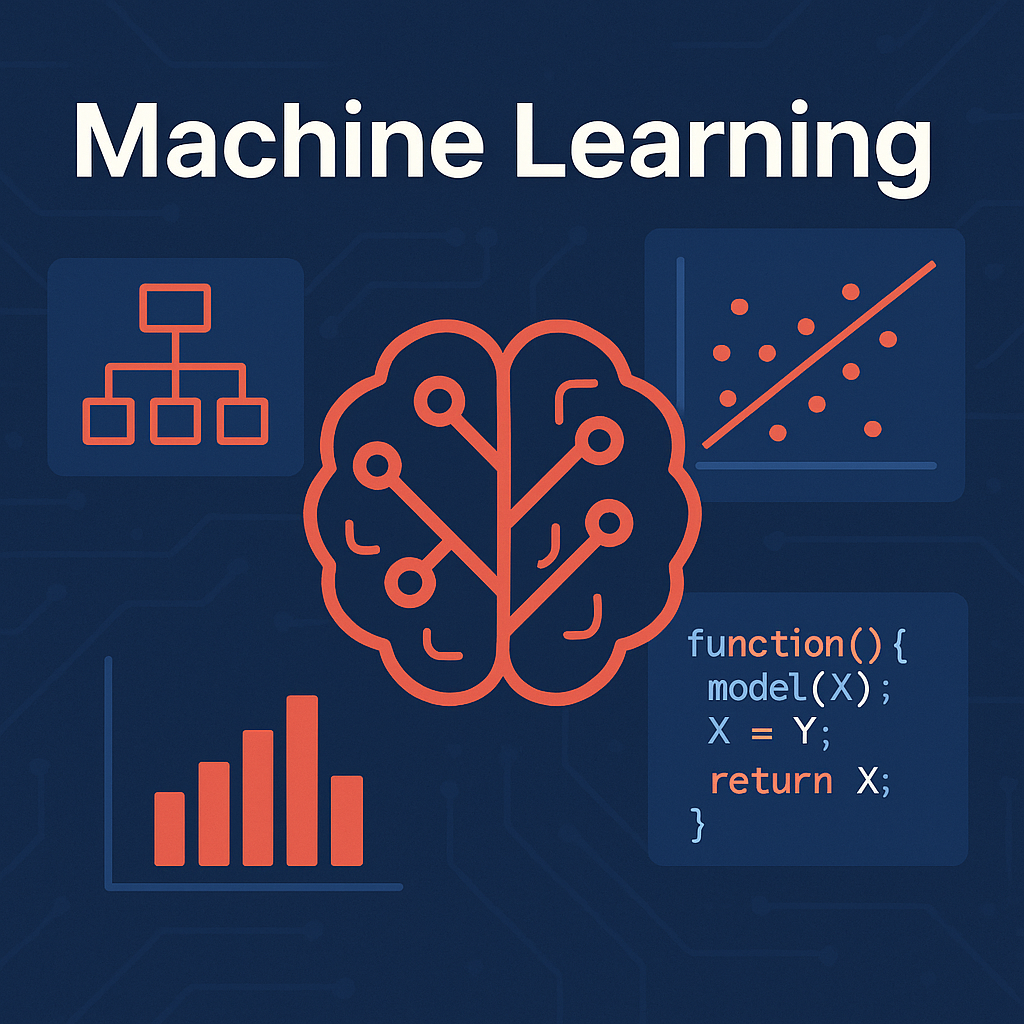Course Content
Java Machine Learning with SuperML
Learn to build production-ready machine learning applications using Java and the SuperML 2.1.0 framework. This comprehensive course covers everything from basic setup to advanced enterprise patterns, with enterprise-grade performance delivering 400K+ predictions/second.
What You’ll Learn
- SuperML Java 2.1.0: Master the sophisticated 22-module framework with intuitive Java APIs
- Enterprise Performance: Build applications with 400K+ predictions/second and microsecond latency
- 12+ Algorithms: Implement Linear Models, Tree-Based Models, Neural Networks, and XGBoost
- Advanced Data Processing: Handle data loading, cleaning, and preprocessing with 22 specialized modules
- AutoML Framework: Automated algorithm selection and hyperparameter optimization
- Dual-Mode Visualization: XChart GUI with ASCII terminal fallback
- Enterprise Patterns: Build scalable, maintainable ML applications with inference engine
- Production Deployment: Deploy models with drift detection and cross-platform export
- Performance Optimization: Optimize ML applications for high-throughput enterprise environments
Prerequisites
- Java Experience: Solid understanding of Java programming (Java 8+)
- Basic ML Knowledge: Familiarity with machine learning concepts helpful but not required
- Development Environment: Java IDE (IntelliJ IDEA, Eclipse, or VS Code)
- Build Tools: Experience with Maven or Gradle
Course Highlights
Native Java Integration
Unlike Python-based solutions, SuperML Java 2.1.0 provides first-class Java support with:
- Object-oriented design patterns with sophisticated 22-module architecture
- Type safety and compile-time checks across all algorithms
- Native JVM performance with 400K+ predictions/second
- Seamless integration with existing Java applications and microservices
Enterprise-Ready Features
- High-performance inference engine with microsecond predictions and intelligent caching
- Thread-safe operations for concurrent applications after model training
- Memory-efficient algorithms with optimized native implementations
- Model persistence with automatic training statistics capture and metadata
- Cross-platform export with ONNX and PMML support for enterprise deployment
- Drift detection for real-time model and data drift monitoring
- Professional logging with structured Logback and SLF4J framework
Comprehensive Algorithm Library (12+ Implementations)
- Linear Models: LogisticRegression, LinearRegression, Ridge, Lasso, SGD variants
- Tree-Based Models: DecisionTree, RandomForest, XGBoost, GradientBoosting
- Neural Networks: MLP, CNN, RNN with real-time training and loss tracking
- Clustering: K-means with k-means++ initialization and advanced convergence
- AutoML Framework: Automated algorithm selection and hyperparameter optimization
- Advanced preprocessing: StandardScaler, MinMaxScaler, RobustScaler, LabelEncoder
Hands-On Projects
Project 1: Customer Segmentation API with AutoML
Build a RESTful API for customer segmentation using K-means clustering and AutoML optimization.
Project 2: Real-Time Fraud Detection System
Create a high-performance fraud detection system using XGBoost and the inference engine.
Project 3: Neural Network Recommendation Engine
Develop a product recommendation engine using neural networks with real-time training.
Final Project: Enterprise ML Platform with Drift Detection
Build a complete ML platform with model training, validation, deployment, and drift monitoring capabilities.
Tools and Technologies
- SuperML Java 2.1.0: Core ML library with 22 specialized modules
- Maven/Gradle: Build and dependency management
- Spring Boot: API development with enterprise integration
- JUnit: Testing framework with comprehensive coverage
- Docker: Containerization for deployment
- Kubernetes: Orchestration for high-performance inference
- XChart: Professional visualization with GUI support
- ONNX/PMML: Cross-platform model export
- Kafka: Real-time data streaming for drift detection
Who This Course Is For
- Java Developers wanting to add ML capabilities to their applications
- Enterprise Architects designing ML-powered systems
- Data Scientists familiar with Python who want to work in Java environments
- Backend Engineers building ML-enabled microservices
- Software Engineers transitioning from other ML frameworks
Course Outcomes
By the end of this course, you’ll be able to:
- Design and implement high-performance ML solutions using SuperML Java 2.1.0
- Integrate ML models into existing Java applications with 400K+ predictions/second
- Build scalable enterprise ML systems with inference engine and drift detection
- Deploy models in production with cross-platform export (ONNX/PMML)
- Optimize performance for high-throughput applications with microsecond latency
- Implement AutoML workflows with automated algorithm selection
- Use advanced algorithms including XGBoost, neural networks, and ensemble methods
- Follow best practices for maintainable, enterprise-grade ML code
Getting Started
Ready to start building ML applications in Java? Begin with our first lesson on SuperML Java introduction and framework setup.
This course is part of the SuperML educational platform and is designed to provide practical, hands-on experience with Java-based machine learning development.

